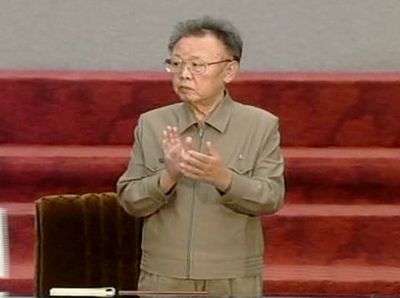Kim returns to public eye in N. Korea
Leader had been missing amid reports of stroke

SEOUL, South Korea – A visibly grayer and thinner Kim Jong-il proved Thursday he remains in charge of communist North Korea, presiding over parliament in a triumphant return to center stage after months out of the public eye following a reported stroke.
Limping slightly, Kim arrived at the grand hall housing the 687-seat Supreme People’s Assembly to a standing ovation and praise for a weekend rocket launch heralded as “historic” at home, though assailed in some nations as provocative.
A master at building drama, Kim fed the world’s curiosity for months about his health after reports said he had a stroke and underwent brain surgery in August – though North Korea has denied that he was ever ill.
Kim solemnly acknowledged his reappointment as chairman of the powerful National Defense Commission, which under North Korea’s constitution makes him the nation’s top leader while his father, late North Korea founder Kim Il-sung, remains “eternal president.”
State media made no mention of Kim from August until October, when there indications that he had re-emerged, with accounts of his visits to farms, factories and military bases. But no video images of him were released until this week.
And Thursday’s appearance was his first at a major public event, with taped video footage broadcast the same day, finally putting to rest any question about whether he has recuperated from the reported stroke that sparked fears of a succession crisis in the nuclear-armed nation.
Kim looked healthy, if older, on Thursday, but the weight loss appeared to have been sudden, leaving the skin on his once-pudgy face hanging loosely.
Despite the limp, it was clear “Kim Jong-il has no problem ruling the country,” said Yang Moo-jin, a professor at Seoul’s University of North Korean Studies.